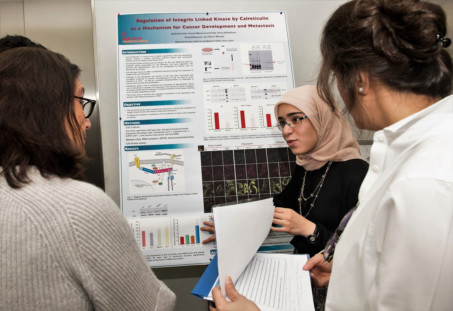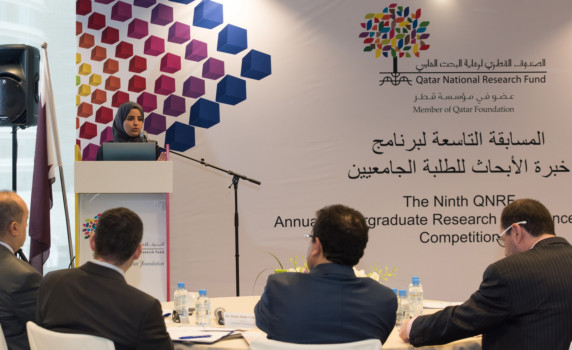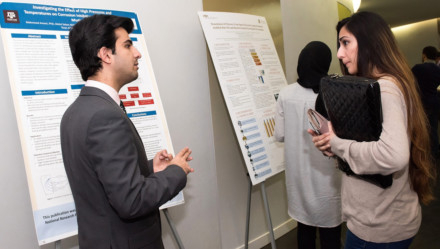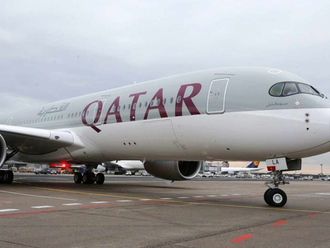
Doha: A team from Qatar University has won first place in Qatar National Research Fund’s (QNRF) ninth Annual Undergraduate Research Experience Programme (UREP) competition.
The ICT-themed project entitled ‘Scalable Real-time Monitoring System for Medical and Brain Computer Interface Applications’, aimed to develop a scalable health system for effective, remote, and real-time patient monitoring.
Al Kuzama Al Harami, who gave the presentation on behalf of the winning team, said she was delighted with the result.
“On behalf of the entire team, I would like to thank Dr Amr Mohammad and Dr Tarek Elfouly, our mentors at Qatar University, as well as everyone at QNRF for their support,” Al Harami said.
“On a personal level, this competition has offered me a hands-on glimpse into the world of research, given me a sense of independence, and proved that we can achieve something beyond normal coursework.”
Second place went to a project titled ‘Role of Adiponectin on Diabetic Retinopathy’. The team found that adiponectin, a protein involved in the regulation of glucose and fats, can significantly counteract the effects of hyperglycaemia.
A project titled ‘Involvement of Qatari Undergraduates towards Conversion of CO2 into Solar Fuels’ won third place, while the fourth team of finalists investigated how to help Qatar find suitable water resources in a project titled ‘Enhancing the Quality of Produced-water by Activated Carbon and Phytoremediation for Irrigation’.
The four top-scoring projects, all from Qatar University and covering a range of areas including biomedicine and health, engineering, and information and communication technology (ICT), were chosen to produce oral presentations, where each team gave a public presentation in front of a panel of judges. The remaining nine teams presented their work in the form of posters, which were displayed and judged on the day of the competition.
“The winning projects are truly exceptional,” Noor Al Merekhi, Programmes Director, QNRF, said as she expressed her pride in the teams. “They have pushed the boundaries on all levels, and demonstrate the research talent emerging among Qatar’s youth.”
Dr Mounir Hamdi, Dean of the College of Science and Engineering, Hamad Bin Khalifa University (HBKU), and chairperson of the UREP competition judging panel, said he was extremely impressed with the quality of the projects, and the relevance of the problems they have addressed and solved.
“The outcome of these projects speak for themselves, and they clearly show the importance and benefits of UREP,” he said. “The students’ presentations and their handling of questions from the judges are of the highest standards.”
The top 25 per cent of projects completed in 2016 under the UREP, a major capacity-building programme of QNRF were selected to participate in the competition, from which 13 projects were shortlisted.
Launched in 2006, UREP is QNRF’s longest-running programme. To date, more than 3,200 students have benefited from taking part in UREP, which gives them hands-on research experience under the guidance of university faculty and research mentors.













